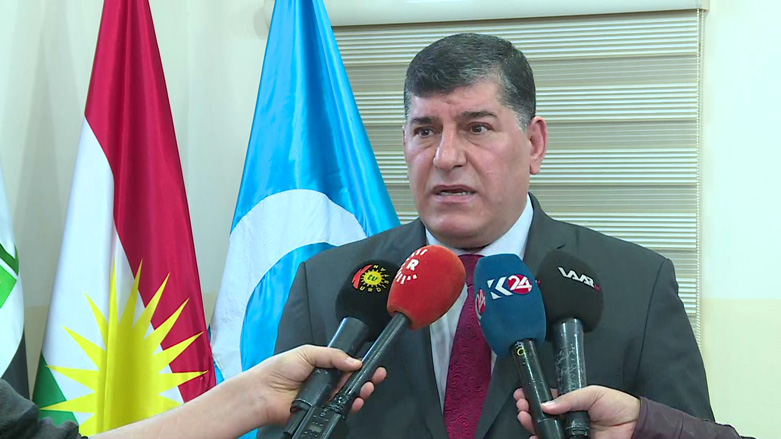No return to Kirkuk as Shia militias confiscated house, party office: Turkmen leader
The security situation in Kirkuk is unstable, and members of Kirkuk Provincial Council (KPC) cannot return to the province due to security concerns, according to a Turkmen official.

ERBIL, Kurdistan Region (Kurdistan 24) – The security situation in Kirkuk is unstable, and members of Kirkuk Provincial Council (KPC) cannot return to the province due to security concerns, according to a Turkmen official.
“There are many Shia Hashd al-Shaabi and other militia groups in Kirkuk. We cannot attend Council meetings in Kirkuk and put our lives at risk,” Irfan Kirkukli, the head of Turkmen People’s Party and member of KPC, told Kurdistan 24 on Monday.
The Turkmen official was one of the KPC members who voted in favor of including the disputed territory in the Sep. 25 referendum on independence for the Kurdistan Region.
On Oct. 16, Iraqi Forces along with the Iranian-backed Shia Hashd al-Shaabi, also known as Popular Mobilization Forces (PMF) took over Kirkuk and other disputed areas which had been under the protection of the Peshmerga Forces over the past few years.
The attack led to the displacement of over 170,000 people from Kirkuk to the Erbil and Sulaimani provinces.
“Hashd al-Shaabi and other militia groups have appropriated our party offices in Kirkuk and my own house. They are still residing there. If that’s the situation, how can we ensure our safety should we return to Kirkuk,” Kirkukli said, adding that other Kurdish parties’ offices had also been seized.
The PMF is yet to comment on the appropriation of party offices and properties in the province.
Kirkukli’s comments came as the head of the Kirkuk Provincial Council (KPC), Rebwar Talabani, announced they would postpone special session which had been planned for Tuesday due to disagreements between the members as to the meeting’s location.
Kirkuk is an oil-rich province located in the south of the Kurdistan Region and north of Iraq. It is a multi-ethnic province with a diverse religious background made up of Kurds, Turkmen, Arabs, and Christians. Kurds account for the majority of the population.
Editing by Nadia Riva
